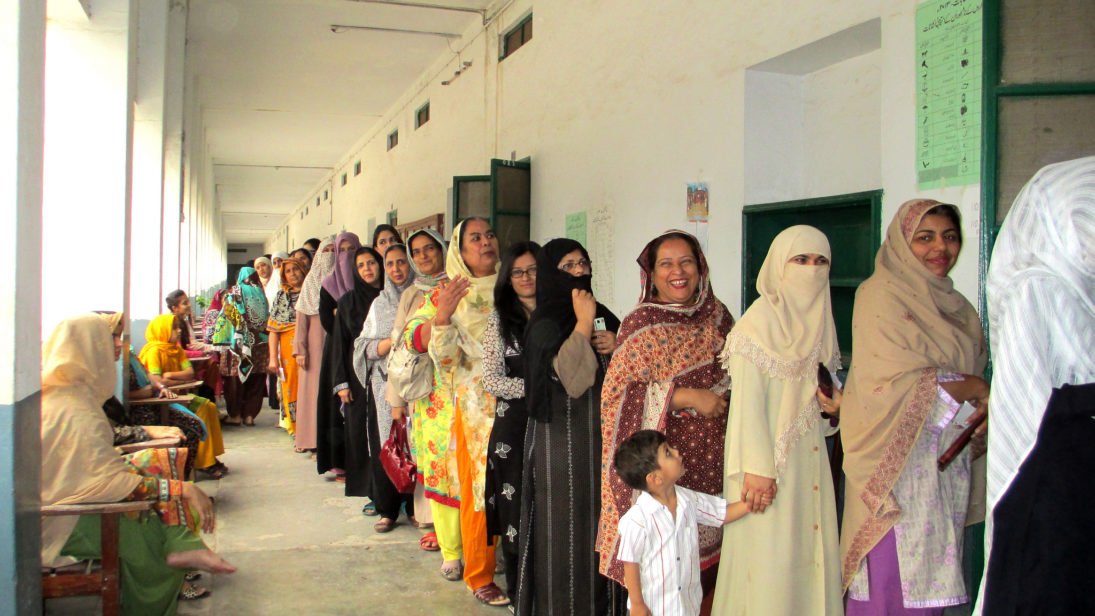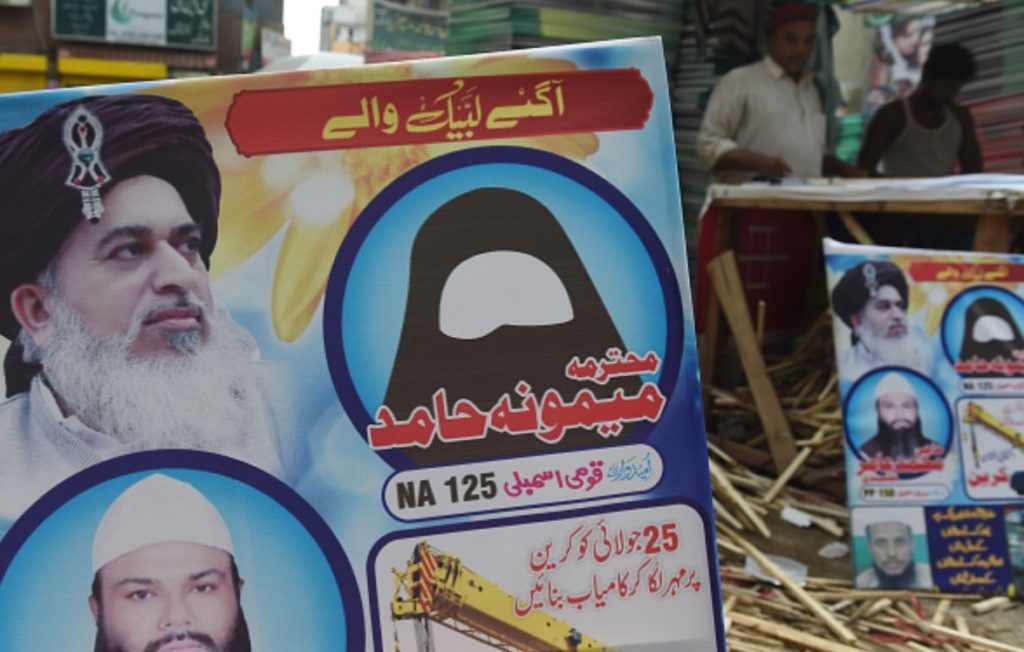
Despite a new law stipulating that all political parties must give five percent of their tickets to women, Pakistan did not see meaningful female participation in the recent general elections. Most political parties fell woefully short of the five percent mark while others fielded women in constituencies that they were not expecting to win. Particularly culpable were Pakistan’s Islamist parties such as Tehreek-e-Labbaik, which granted only 23 out of a total 182 tickets to women for the national assembly. Even though women in mainstream political parties have managed to acquire leadership positions, female members of Islamist parties are largely yet to break that glass ceiling. Thus far, these women have mainly focused on social welfare activities but not really provided input to policymaking. Although the participation of women in Islamist parties is a positive step, there is a long road ahead to their mainstreaming in politics and for equal representation of women in Pakistani politics broadly.
Homemakers, Not Policymakers?
Patriarchy is embedded in the social structure of Pakistan. Men have traditionally served as the voice of the public in all aspects of daily life: politically, economically, or socially. The conventional narrative is that a women’s role is meant to be in the home while the male head of the household earns. Because of such labels, women often find themselves isolated from the public sphere. A study conducted by the World Economic Forum found that participation of women in Pakistan’s labor force is only 25.7 percent as compared to 85.7 percent for men while female literacy is 44.3 percent compared to 69.1 percent for men.
The term “Islamist” is often associated with gender segregation, and there is some truth to the association. One stereotype that arises is that Islam forces women to practice purdah (cover their heads) and remain in the private sphere. Because of this, and despite the rule that five percent of candidates fielded by political parties must be women, male segments of parties like the TLP are either hesitant to field female candidates or merely use female candidates as a token to gain more legitimacy under such laws. Women are also fielded because the male majority believes that female candidates will not win. The TLP, for instance, fielded a female candidate in Peshawar under the name of “Ms. Yasmeen”. A member of the TLP claimed: “She is a silent candidate. We gave her name to fulfill the requirements of the election commission, but she will not campaign.”

Conservative female politicians continue to remain isolated in the public sphere because of the belief that they are incapable of bringing forth constructive reform. Even with the recent elections, no groundbreaking legislation has been passed that would grant more power to women. The fact that conservative women have yet to gain electoral seats remains even more problematic. Male segments of these parties still view women as inferior and refuse to grant them any real political power.
Winds of Change
However, there now seems to be a move towards giving women more space in these parties. The extent to which Islamist parties ascribe to gender segregation is not uniform and depends on each party’s interpretation of Islam, as illustrated in the party’s founding doctrines. For instance, the JI has interpreted Islamic rhetoric more liberally in some aspects than other religious parties. For instance, in its written constitution, the Jamaat-e-Islami announced various pro-women measures such as supporting their higher education, ensuring their participation in the workforce, as well as denouncing the practice of triple talaq. In addition, the JI has a female student wing called the Islami Jamiat Talibat, which is actively involved in the women’s rights movement in Pakistan. This shows signs of gender mainstreaming within the JI. However, even though women were identified and acknowledged in the constitution and measures for their welfare considered, their role within the party was not specifically mentioned.
Despite the marginalization in Islamist parties, women have continued to play a role in the social welfare sphere. Although unstructured, women participate within pre-existing public spaces to do charity work and address challenges facing their community. For example, the Al Khidmat Khawateen charity was created by the female wing of the JI to improve the welfare of women such as by providing vocational training and basic healthcare services. For both the JI and TLP, practices of piety are key. Rather than seeking election, female party workers aim to be part of the party platform, so they can draw support from their respective localities. What makes such a scenario unique is that there is a dearth of role models for conservative women. Current politicians have failed to recognize the potential of this section of society, but it would behoove religious parties to do so.
The Long Road Towards Gender Parity
The existence of female wings within Islamist parties is certainly a harbinger of a shift in the political landscape of Pakistan. Women are participating in politics, possibly paving the way for more female role models in the public sphere. However, despite this upward trend of female engagement, huge challenges remain. Women’s role in Islamist parties remains limited to providing social welfare services or merely to meet electoral law requirements. Attaining positions of real leadership and authority within these parties remains a barrier for women. Breaking such barriers will require male members of these parties to change their perceptions of gender segregation, and for conservative women to organize themselves and dedicate themselves to activism for their political rights. They could perhaps take a leaf out of the books of their counterparts in mainstream political parties. In fact, if women across the political spectrum could come together, female representation in Pakistani politics may take a hopeful turn.
***
Image 1: DFID via Flickr
Image 2: Arif Ali/AFP via Getty Images


